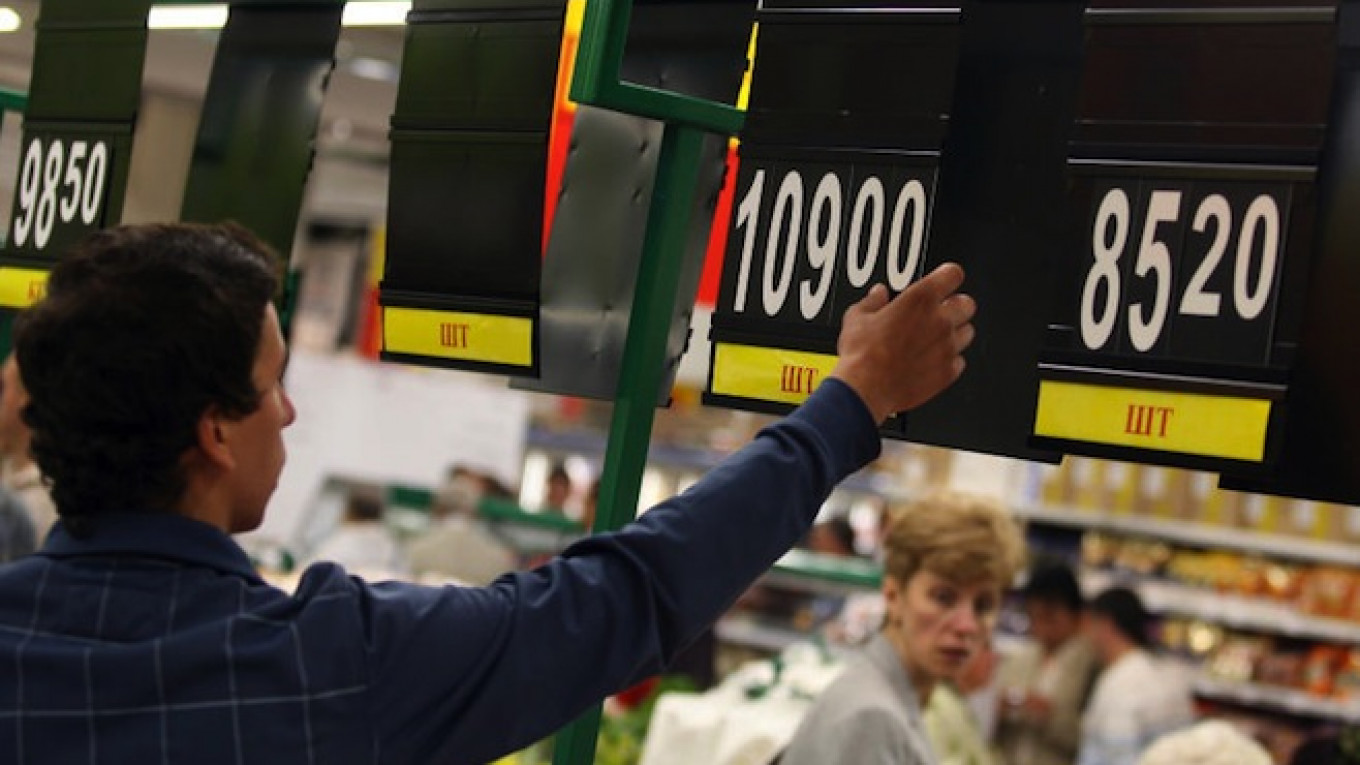An economic recession and soaring grocery prices have prompted Russians to go online to trade household items for food, with scores of websites facilitating a barter system cropping up around the country.
Russia's main social network, VKontakte, has an array of online groups, targeting various cities, where local inhabitants place ads to trade clothes, furniture, tableware or even kittens for “yummies.”
The idea has gained traction in the Siberian city of Omsk, where one group had garnered more that 58,000 followers by Wednesday. The relatively prosperous Moscow also has a few, although the Moscow groups lag far behind in popularity, despite the capital's much larger population.
Some of the ads are phrased in general terms, describing the item that is being offered and inviting possible trades. Others are highly specific, offering a hair straightener in exchange for a chicken, a handbag for a kilogram of sugar, or a clothing iron for three cans of sardines.
The Siberian branch of the state-run Rossia television network described the barter system in Omsk as residents' “way of surviving the crisis.”
“At a time of an economic decline, various sanctions and growing food prices, the people of Omsk don't abandon each other in trouble, but use such guileless methods to share extra goods they have accumulated,” the network's reporter said in a Tuesday newscast.
Russia has few thrift shops or charities where local inhabitants can donate clothes or furniture, and some social network users praised the online groups as a way to “freecycle” unneeded possessions.
A young woman from Omsk, Natalya Rovenskaya, who recently traded two cans of green peas for a coffee set, told Sibera's Rossia television she often exchanged books and tableware, while children's clothes were also popular items to trade among social network users.
“Some people used to throw away what was no longer needed, but now there is an opportunity to trade,” she said. “I trade a lot, and I give away very many things, and thanks to this I have made a lot of friends.”
Russia banned food imports from the West in response to sanctions against Moscow, and Russian President Vladimir Putin has ordered government agents to destroy any food smuggled into the country.
Russia will introduce additional screening of food imports on the border with Belarus starting on Dec. 7, to prevent banned produce and groceries from being smuggled through the neighboring country under fake papers, the head of agriculture watchdog Rosselkhoznadzor, Sergei Dankvert, said Tuesday, the Interfax news agency reported.
Russia's economy is in a deep recession, having shrunk in recent years by about 40 percent in U.S. dollar terms, due in part to a drop in the price of oil and to Western sanctions imposed for Moscow's annexation of Crimea and support for separatist insurgents in eastern Ukraine. The ban on food imports has contributed to further price hikes in Russian grocery stores.
Moscow recently added Turkey to the list of countries from which food imports are prohibited, after Turkey shot down a Russian warplane near the Turkish-Syrian border on Nov. 24.
Contact the author at [email protected]
A Message from The Moscow Times:
Dear readers,
We are facing unprecedented challenges. Russia's Prosecutor General's Office has designated The Moscow Times as an "undesirable" organization, criminalizing our work and putting our staff at risk of prosecution. This follows our earlier unjust labeling as a "foreign agent."
These actions are direct attempts to silence independent journalism in Russia. The authorities claim our work "discredits the decisions of the Russian leadership." We see things differently: we strive to provide accurate, unbiased reporting on Russia.
We, the journalists of The Moscow Times, refuse to be silenced. But to continue our work, we need your help.
Your support, no matter how small, makes a world of difference. If you can, please support us monthly starting from just $2. It's quick to set up, and every contribution makes a significant impact.
By supporting The Moscow Times, you're defending open, independent journalism in the face of repression. Thank you for standing with us.
Remind me later.


